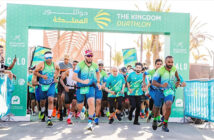Ever seen a coffee shop filled with a huge number of people with mostly men shouting and cheering from time to time? Have you experienced being stuck in traffic due to a sudden street party? They are probably celebrating a win of their favorite Saudi football team. The intense fascination and deep love of Saudi Arabia for the game of football are beyond words. But we will try to put them into words in this primer.
On any normal day, groups of men, both young and old, would fill outdoor football fields in some districts all over the Kingdom and play until late at night. Nowadays, indoor football has been popular too. When there is no available playing area in a certain neighborhood, Saudi football enthusiasts can turn any empty streets or vacant lots into a football field in an instant. From north to south, east to west of the Kingdom, it’s all about the sport of football: kicking the ball to a much-coveted GOAL!
Football, or soccer in some parts of the world, has a very long history which traces back to ancient China in third and second century BC, with a ball-kicking game called cuju, but the current form of the sport arose in England in the middle of the 19th century which led to the formation of The Football Association in 1863, the oldest football association in the world, who set the rules of football as we now today.
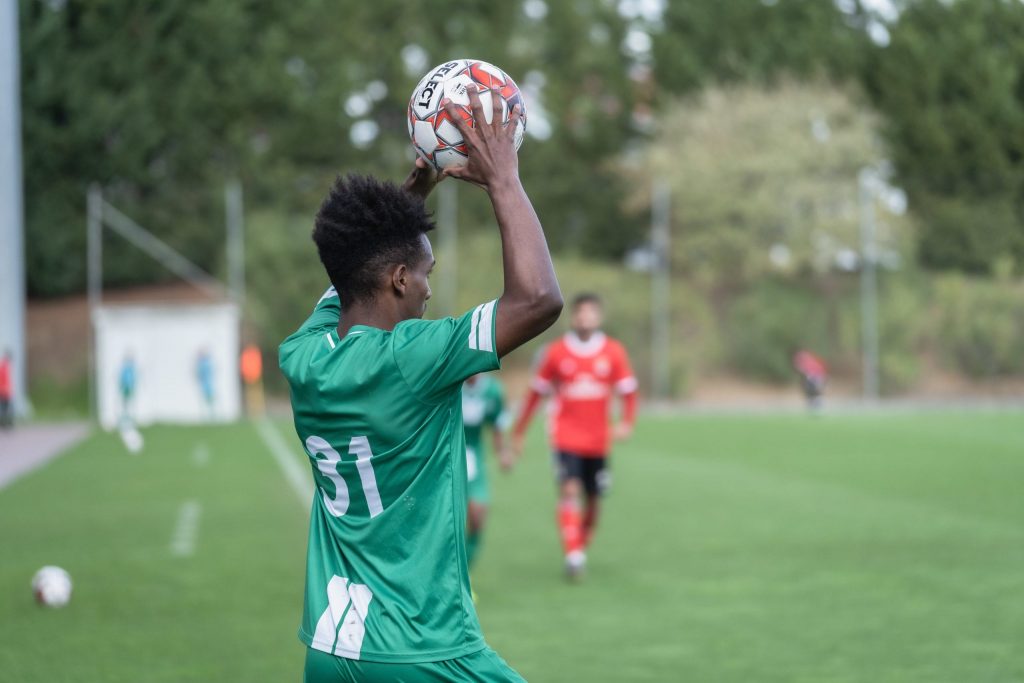
Photo credit from Saudi Arabian Football Federation.
Arguably the most popular sport in the world, football is played by two teams of 11 players each on a grassy football pitch and is divided into two halves of 45 minutes, beginning at the center of the field, with the main objective of scoring more goals against the opponent. The game is played by kicking a spherical ball or hitting it with any parts of the body but not to be touched by hands and arms while the ball is in play except for goalkeepers when the ball is in their goal box. The only time a player may use his hands is during a throw in, an inbound pass after the ball crosses the touchlines.
The Saudi Arabian Football Federation (SAFF) is the governing body of football in the Kingdom founded by Prince Abdullah bin Faisal Al Saud in 1956. In the same year, SAFF joined Fédération Internationale de Football Association (FIFA), the highest managing organization of international football, and the Asian Football Confederation (AFC), one of FIFA’s continental associations, in 1972.
In international tournaments and friendly invitational matches, Saudi Arabia is represented by their national football team, Al Suqour Al Akhdar or the Saudi Green Falcons. The color green, which is the shade of their uniforms as well, represents the color of the Saudi Arabian flag. The falcon is a precious bird in the Arab countries and a symbol of Saudi Arabia that signifies courage and strength. It is also known for its excellent vision and speed in attacking its prey.
The Saudi Green Falcons is recognized as one of Asia’s most successful national teams for bagging three AFC Asian Cup championship titles. They won their first title on their first time to qualify for the Asian Cup in 1984 when they faced China in the finals in Singapore with a 2-0 victory. In 1988, they defended their title against South Korea in a tough matchup hosted by Qatar which was decided through a penalty shootout with the score of 4-3. It was a finals match against the host country, United Arab Emirates, in 1996 when they clinched their third title with a 4-2 triumph out of penalty shootout. In addition to these, the Green Falcons finished in runner-up positions in 1992, 2000, and 2007.
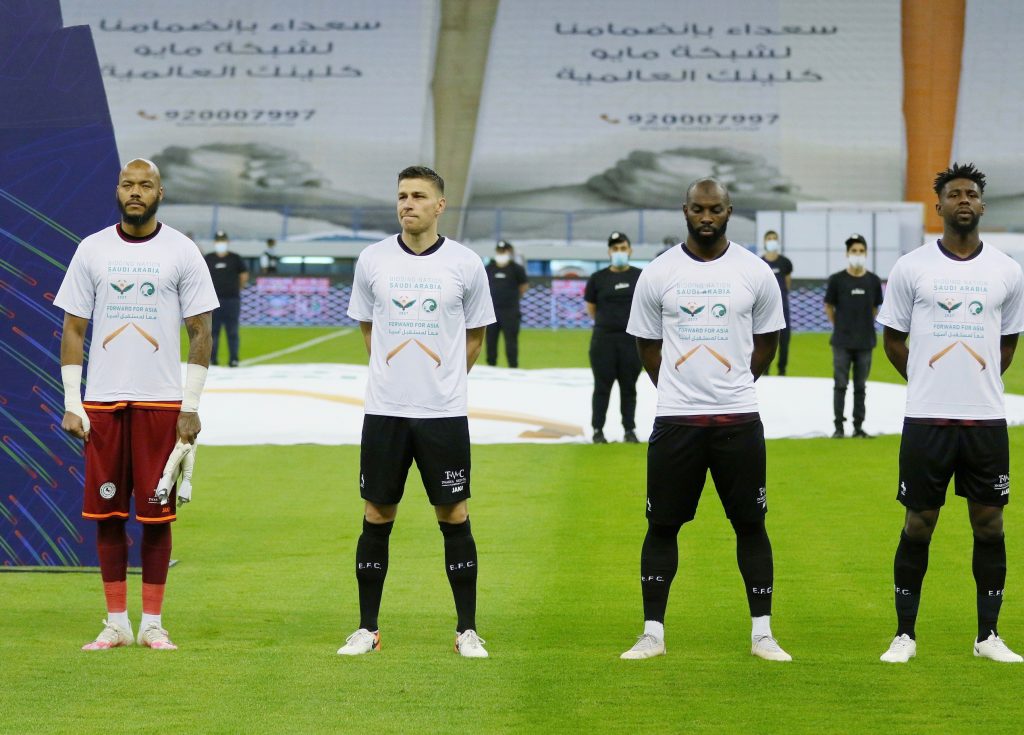
Photo credit from Saudi Arabian Football Federation, Forward for Asia 2027.
Qualifying in the strenuous competition of FIFA World Cup has been achieved by the Green Falcons five times. The US-hosted 1994 FIFA World Cup holds the best World Cup finish by the Saudi national football team where they reached the round of 16 but was defeated by Sweden, 3-1, and landed 12th place in the overall rankings. In their next FIFA World Cup stints, the Green Falcons finished in the group stages and did not reach the knockout phase, which were in 1998 FIFA World Cup held in France, 2002 FIFA World Cup hosted by South Korea and Japan, 2006 FIFA World Cup in Germany, and 2018 World Cup in Russia.
The Saudi Green Falcons, who currently ranks number 66 in the overall FIFA world rankings of 2020, is a squadron of selected fierce and competitive players from the Saudi Professional League (SPL).
Among the four professional domestic leagues, SPL is the top division of professional football in the Kingdom which was founded in 1976. Sixteen Saudi football clubs compete in the league composed of the top 12 clubs from the previous season, the play-off winner, and the top three upgraded clubs from the Saudi First Division. Al-Hilal Saudi Football Club (FC) is SPL’s current champion and most successful team with 16 titles.
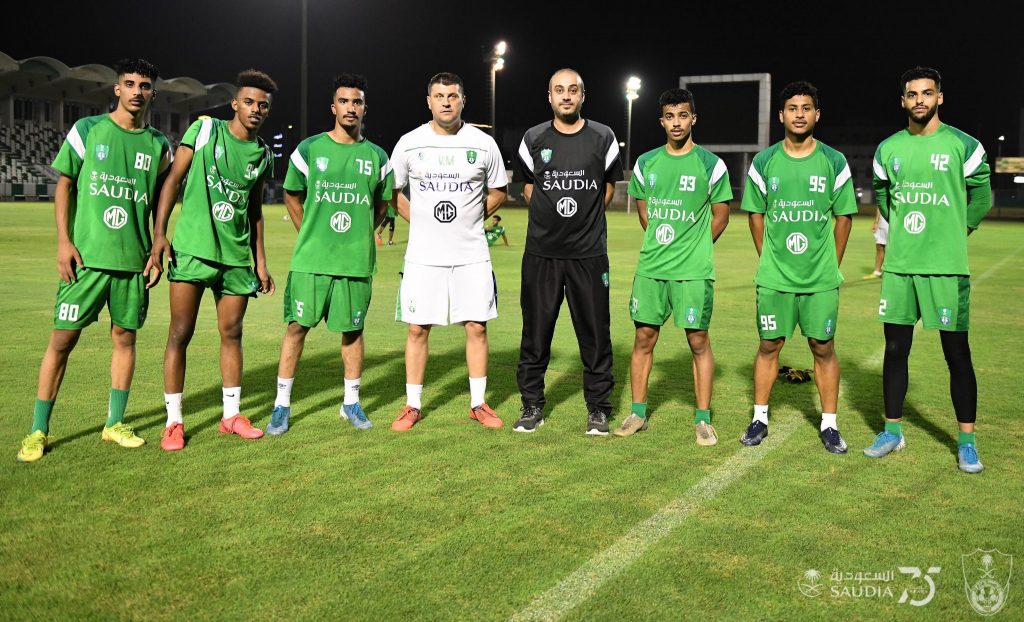
Members of the Al-Ahli Saudi FC Team. Photo credit from Al-Ahli Saudi FC Twitter.
The second tier of Saudi Arabia’s professional football is the Saudi First Division or the Prince Mohammad bin Salman League, often referred to as the MS League. Founded in the same year as SPL, the MS League is participated by 20 clubs that include 13 from the previous season, three relegated clubs from SPL, and four promoted clubs from the Saudi Second Division. As of writing date, Abha FC holds their first title in this division for last year’s season.
The Saudi Second Division comes next below the MS League which was founded in 1996 consists of 24 participating football clubs. The division champion, runner-up, and third place get to advance to the First Division while the bottom two teams of each group step down to the Saudi Third Division. The current champion in this division is the Al Ahsa-based Hajer FC with their second title.
With a total of 121 competing teams for 32 spots for the final stage, the 1997-founded Saudi Third Division is the fourth tier of the Kingdom’s football league system. The top four teams from this division are upgraded to the Saudi Second Division. Al-Safa Club, based in Safwa, Eastern Region, is the current title bearer in this division, their second.
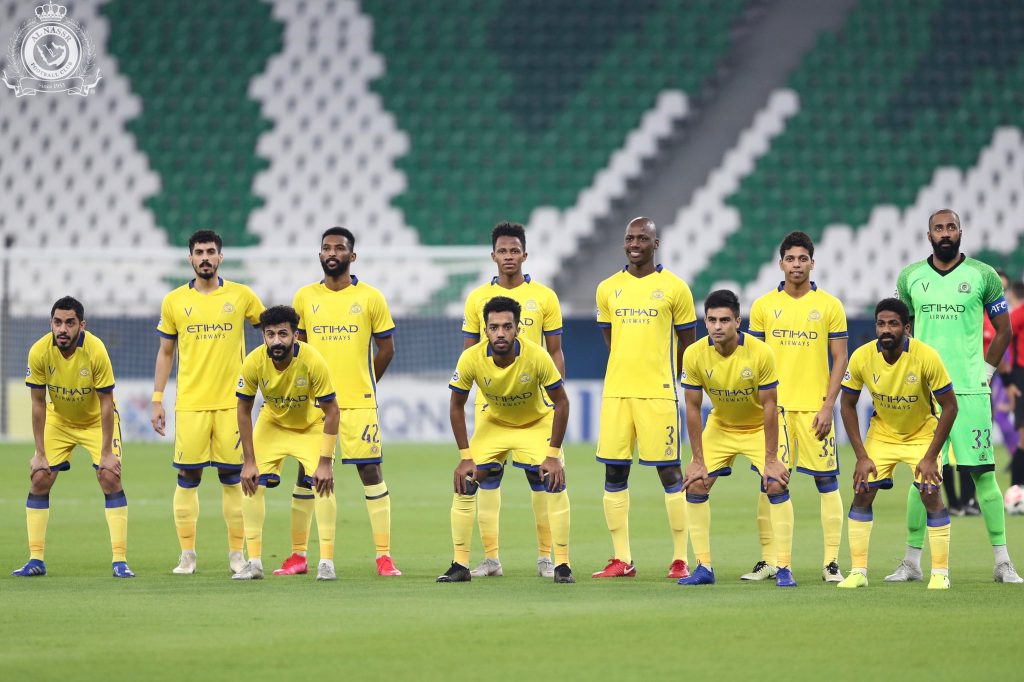
Members of the Al-Nassr FC Team. Photo credit from Al-Nassr FC Twitter.
The various clubs from these different football leagues may compete among themselves during the King’s Cup. Officially known as The Custodian of the Two Holy Mosques Cup, it is an annual knockout tournament run by SAFF established in 1957. It is joined by a total of 64 teams – all 16 teams from SPL, 20 from MS League, 24 from Second Division, and top 4 teams from the Third Division. The winner of this cup will secure a spot in the AFC Champions League.
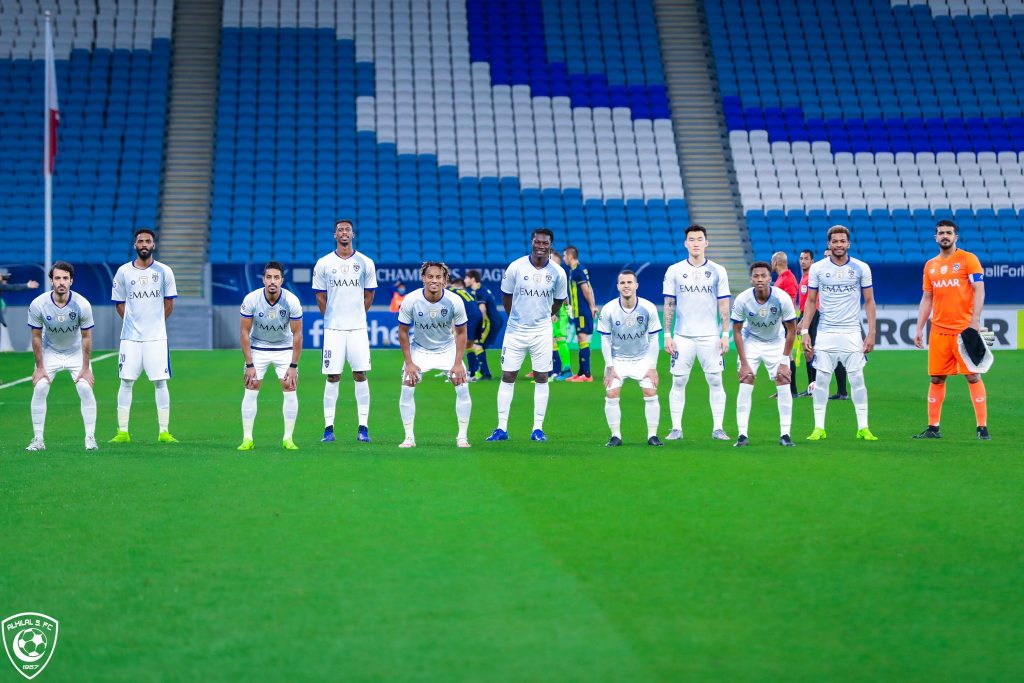
Members of the Hilal SFC Team. Photo credit from Al Hilal SFC Twitter.
Another much-awaited tourney was created in 2013, the Saudi Super Cup. It is a single game matchup played by the reigning SPL champion team against the King’s Cup winner. It is indeed a battle of the champions. In case the same team won both SPL and King’s Cup title in a single season, the runner-up of SPL will go against the champion team.
In early 2018, a significant moment in Saudi Arabian football history took place when the Saudi government opened the stadium doors for female audience lifting the ban on women watching football matches live. This event widened the target audience of the games.
In June 2020, in accordance with the Ministry of Sports’ decision to allow the resumption of sports activities, the SAFF Board decided to set the return of football competitions for the 2019-2020 season last August 2020. Clubs were allowed to continue practice sessions with precaution. The competitions have resumed and as a preventive measure, there were no fans in the stands since public attendance is prohibited. Football fans still enjoy watching the games from their homes.
Indeed, not even COVID-19 can stop the football craze in Saudi Arabia.
Notable Teams
- Al-Hilal SFC is a Riyadh-based football club established in 1957. With a total of 16 SPL championship titles, Al-Hilal holds the most number of wins in the Pro League. In addition, they have won eight King’s Cup titles and two Saudi Super Cup titles. They have a record of seven AFC trophies won – three from the Champions League, and two each for Asian Cup Winners’ Cup and Asian Super Cup. Al-Hilal also tops Saudi football score ranking with a total of 1,683 points.
- Al-Nassr FC is a football club based in Riyadh that has won nine SPL titles, six King’s Cup titles, and one Super Cup title. With total points of 1,577 in the Saudi football score ranking, this 1955-founded club ranks second to Al-Hilal. They pulled off an impressive Asian double in 1998 when they clinched both Asian Cup Winners’ Cup and Asian Super Cup titles. Al-Nassr goes by the nicknames “The International” and “Najd’s Knight”.
- Al-Ahli Saudi FC is a Jeddah-based club founded in 1937. Al-Ahli have won seven SPL trophies, 12 King’s Cups, one Super Cup, and have reached two AFC Champions League finals. They rank third in the Saudi football score ranking with 1,518 points.
Notable Players
- Majed Abdullah, dubbed as “Arabian Jewel”, is a Jeddah-born retired striker who played for Al-Nassr and the Saudi National Team. He holds the all-time top scoring record in the SPL with 189 goals in 194 appearances and the all-time leading scorer for the national team with 72 goals in 117 games.
- Mohamed Al-Deayea is a former football goalkeeper from Ha’il who played for Al-Tai FC in the MS League and Al-Hilal in SPL. He also played for the Saudi national team and made 178 international appearances. He was voted Asia’s Goalkeeper of the Century by the International Federation of Football History and Statistics in 1999.
- Sami Al-Jaber is a retired forward from Riyadh, an AFC Hall of Famer, and is the second highest international scorer for the Saudi National Team with 46 goals in 156 internationals. Al-Jaber is often recognized as Al-Hilal’s most popular player after spending nearly 20 years in the club and has helped the team win six league trophies and two Asian Champions League titles.


